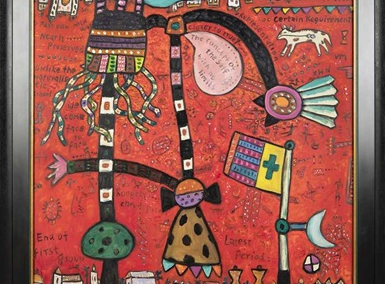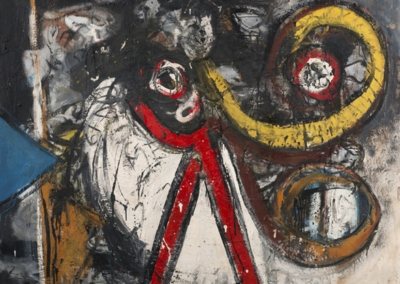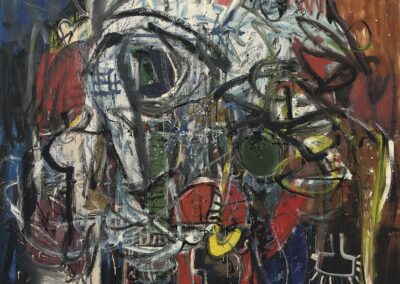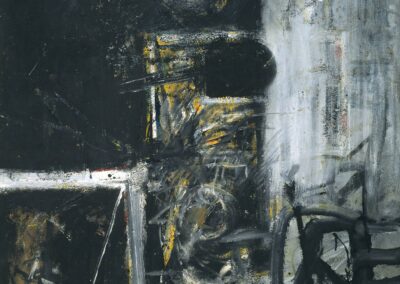The next Artist You Need To Know, brought to you by AIH Studios, offers a step into the wider, international art world. Alan Davie was a Scottish painter, born in 1920 and passed in 2014.
Zen philosophy was a major influence on his work, but his works were very focused upon mark-making, where a form emerges or slips away, with abstraction and representation in sometimes congruous, sometimes more confrontational interaction in his paintings. His style was spontaneous, incorporating symbols and styles he encountered in his lived experience and education, but his works have a unity of consideration that flows through them all.
-

Sacrifice, 1956
-

The Concept of the Self with No Limits No. 1, Opus O.1669, 2003
-

Bull God No.5, n.d.
-

Birds, Idol no 4, 1970
-

A Storm Cometh, 2011
-

Image of the Fish God, 1956
From artnet: “Davie’s roster of references and influences is extensive, and includes Jungian psychoanalysis, Pictish symbol stones, contemporary abstract painters, and his lifelong passion and aptitude for playing music. His work can now be found in museum collections worldwide, notably including the Peggy Guggenheim Museum in Venice, The Museum of Modern Art in New York, and the Stedelijk Museum in Amsterdam, among others.”
-

The Alchemist's Mirror No. 1 (Opus 1357), 1997
-

Entrance for a Red Temple No. 1, 1960
-

Hallucination with Red Headed Parrot, 1984
-

Birth of Venus, 1955
-

Insignias of the Gannet people, 1958
-

Black Mirror, 1952
A fine article in The Guardian, marking his passing, offers a thoughtful summation of his art: “It sometimes seemed that Alan Davie was known everywhere western art is seen, from Stromness, in his native Scotland, to Sydney and São Paulo, which were among the dozens of cities and countries where he had solo shows; everywhere except in the histories of 20th-century art, where he tended to be granted a passing reference in lists of like-seeming artists, from the postwar European movement Cobra to the Austrian Hundertwasser and the abstract expressionists. The problem was that Davie….could not be pigeonholed. By his own reckoning, he was painter, poet, jazz musician and jewellery designer. His admirers also had him down as a shaman and a maker of magic, which did not displease him.”
Major retrospectives of his work were held at Tate St Ives and the Tate (when it was still Tate Britain); and many more of his works can be seen here, at the National Galleries Scotland site.












